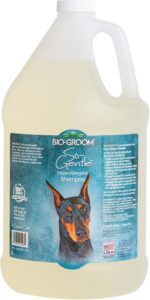
Introduction
Reptile enthusiasts understand the unique challenges involved in maintaining the health and well-being of their scaly companions. One crucial aspect often overlooked is calcium supplementation. Calcium is vital for reptiles, playing a significant role in bone health, muscle function, and metabolic processes. In this guide, we will delve into the importance of calcium, the symptoms of deficiency, and how to effectively supplement it in your reptile’s diet to optimize their health.
The Importance of Calcium in Reptiles
Calcium is an essential mineral that supports several physiological functions in reptiles. It is primarily known for its role in building and maintaining strong bones and shells. However, calcium is also crucial for nerve function, muscle contraction, blood clotting, and enzyme activity. Reptiles, particularly those in captivity, can easily suffer from calcium imbalances that may lead to severe health issues.
Bone Health
Calcium is a primary component of bone. In reptiles, adequate calcium levels are necessary for proper bone development during growth and for maintaining bone density throughout life. A lack of calcium can lead to metabolic bone disease (MBD), a condition characterized by deformed bones, fractures, and, in severe cases, paralysis or death.
Metabolic Functions
Beyond bone health, calcium is vital for various metabolic processes. It is involved in muscle contractions, including the heart, and plays a role in the transmission of nerve impulses. Calcium also aids in blood coagulation and enzyme regulation, making it indispensable for overall metabolic health.
Recognizing Calcium Deficiency
Detecting calcium deficiency early can prevent serious health problems. Common signs of deficiency include:
Physical Symptoms
– Soft or deformed bones and shells
– Skeletal deformities
– Lethargy or weakness
– Muscle twitching
– Difficulty moving or paralysis
Behavioral Changes
– Loss of appetite
– Irritability or increased aggression
– Reduced activity levels
If you notice any of these symptoms, it is crucial to consult a veterinarian who specializes in reptiles for a thorough examination and diagnosis.
Understanding the Role of Vitamin D3
Calcium supplementation alone is not enough to ensure optimal health. Vitamin D3 is essential for calcium absorption and utilization in reptiles. In the wild, reptiles synthesize Vitamin D3 through exposure to ultraviolet B (UVB) radiation from the sun. In captivity, providing UVB lighting is crucial, as it enables reptiles to produce Vitamin D3 and effectively absorb calcium.
Types of Calcium Supplements
Selecting the right type of calcium supplement is vital for the health of your reptile. Here are some common forms available:
Calcium Carbonate
Calcium carbonate is one of the most widely used supplements. It is highly bioavailable and can be easily sprinkled on food. It is also relatively inexpensive and provides a high concentration of calcium.
Calcium Gluconate
This form is often used in liquid supplements and is well-absorbed. It is ideal for reptiles that may have difficulty with powdered supplements.
Calcium Lactate
Calcium lactate is another option that is highly absorbable and often used in combination with other forms to enhance bioavailability.
Calcium Phosphate
While this form can provide both calcium and phosphorus, it is important to monitor the calcium-to-phosphorus ratio, as an imbalance can lead to health issues.
Guidelines for Effective Calcium Supplementation
To ensure your reptile receives the appropriate amount of calcium, consider the following guidelines:
Determine the Specific Needs of Your Reptile
Different species have varying calcium requirements. Research the specific needs of your reptile species to provide the correct amount of supplementation.
Provide a Balanced Diet
Offer a varied diet that includes calcium-rich foods. Leafy greens, vegetables, and insects can be excellent sources of natural calcium.
Ensure Proper UVB Lighting
Invest in high-quality UVB lighting to simulate natural sunlight. Ensure the UVB bulb is replaced regularly to maintain effectiveness.
Monitor the Calcium-to-Phosphorus Ratio
Maintain a balanced calcium-to-phosphorus ratio (ideally 2:1) in your reptile’s diet. This balance is crucial for effective calcium absorption.
Administer Supplements Correctly
Follow the manufacturer’s instructions for dosage and frequency. Be cautious not to over-supplement, as excessive calcium can lead to hypercalcemia, causing health problems such as kidney damage.
Special Considerations for Breeding and Growing Reptiles
Breeding females and growing juveniles have increased calcium demands. During these life stages, reptiles require additional calcium to support egg development and rapid growth.
Breeding Females
Ensure breeding females receive adequate calcium before, during, and after egg-laying to prevent depletion of calcium reserves, which can lead to reproductive issues.
Juveniles
Juveniles experience rapid growth and require higher calcium levels to support bone development. Regularly monitor their growth and adjust supplementation as needed.
Potential Risks and Precautions
While calcium supplementation is beneficial, it is important to be aware of potential risks:
Over-Supplementation
Excessive calcium intake can result in hypercalcemia, leading to calcification of soft tissues, kidney damage, and other health problems. Always adhere to recommended dosages and consult a veterinarian if in doubt.
Ignoring Underlying Health Issues
Calcium deficiency symptoms may be indicative of other health problems. A comprehensive health evaluation by a veterinarian is essential to rule out underlying conditions.
Conclusion
Optimizing reptile health through effective calcium supplementation involves understanding the specific needs of your reptile species, providing a balanced diet, ensuring proper UVB lighting, and administering supplements correctly. By taking these steps, you can help prevent calcium deficiencies and promote overall well-being. Regular veterinary check-ups and monitoring of your reptile’s health are essential to maintaining their quality of life.
In conclusion, calcium supplementation is a critical component of reptile care. With the right knowledge and approach, you can ensure your reptile thrives in captivity, enjoying a long and healthy life.
#ChatGPT assisted in the creation of this article.








